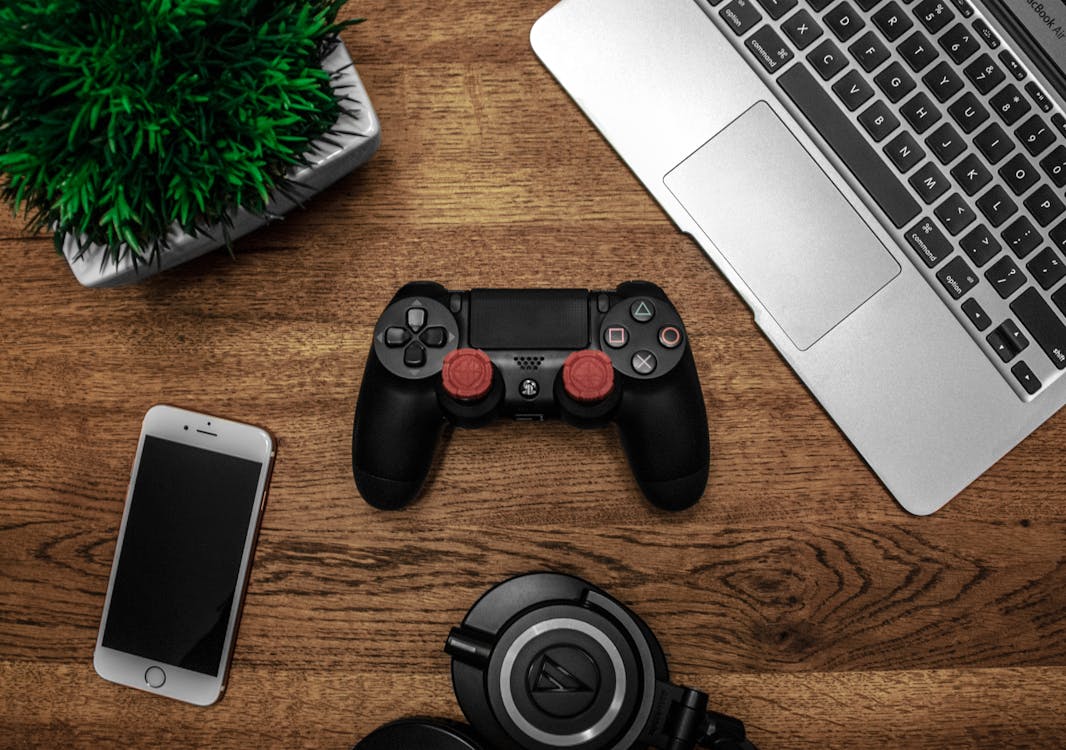It's no secret that the gaming industry has seen a huge leap in the past few years, due to the outpouring of quality content being produced by the companies behind incredible games such as Uncharted and Apex Legends. But, over the last few months, lockdown and quarantine have had a major impact on the games industry as a whole, beyond a few simple numbers and statistics - and not always for the better. Read on, to find out 5 ways Covid-19 has affected the games industry, positively and negatively.

35% Increase In Sales
Overall, the general upturn in sales is not surprising. With more people having to stay at home, after being laid off, on furlough or simply working from home, people are using the extra time to wind-down and enjoy their day. This is already hard enough, given the circumstances, but the larger corporations have done well to cope with demand.
Some companies are even offering up free games which, despite the contradictions suggesting game sales would decrease with these options, it has actively encouraged more people to get into gaming. Especially as there are no more options than ever, when it comes to staying connected with friends and family through online games.
There has been a 63% increase in the sales of hardware (consoles, VR headsets and so on) and a 34% increase in software - the bread and butter of the gaming industry. This is without the major impact of digital sales of Animal Crossing, which doesn't factor into these statistics despite being released in March.
When we include Animal Crossing - one of the most popular games to have ever been released on Nintendo, accounting for 50% of the total, digital sales in March - those numbers skyrocket. For Nintendo alone, a new sales record was set in the same month, more than doubling the numbers gained from the same time, last year.

20% Reduction In Productivity

All of this, of course, does not include the mental strain that comes with producing high-quality games during a global pandemic. Managing your mental health is tough enough, without the added struggles of setting up a new routine and staying sane, when it feels like the whole world is losing its mind. While it's fair to say that working from home can help in some aspects, it's also no secret that those who have creative minds are more likely to suffer from mental health problems. Naturally, many of these minds are working hard to keep up with current progressions in development, so those will naturally take a toll on the productivity of the workforce.
Games Have Been Delayed
Most studios will be working, well beyond the development of the actual game, in order to get great copies of incredible games to you and your console. Quality assurance, marketing, physical production, shop closures and limited levels of press all have a major effect on whether a game will be considered profitable. As such, it's usually beyond the jurisdiction of the developer themselves to effectively produce a game, once it's left the writing, programming and development stage.
Larger companies, such as Naughty Dog, have had a lot of bad press coming from fans, due to the delays in shipping - before finally coming up with a final release date, shortly after leaks were produced by hackers. However, such is life that, if you want DLC's, they can only be produced after a successful launch, and for those seeking a proper commitment to smooth gameplay, a wait is to be expected.
Aside from struggling to get the components required (everything from those plastic cases to the console bundles), there haven't been any major promotions available to help sales along. With companies often operating at a loss until the release of the game itself, it's hard to say how financing will be able to work until predictions are available - and most of those will be withheld until the market eases itself out of the Covid-19 downturn.
/cdn.vox-cdn.com/uploads/chorus_image/image/62925129/steam_stats.0.jpg)
Smaller companies and games from independents will also be struggling with securing the financing required to help development to shuffle along. Without the added help of investors, many of these indie developers and gaming companies are struggling to make ends meet and are working themselves to the bone to keep going. Naturally, this means delays going on for the foreseeable future. But hang tight and be patient - all of your favourites will be with you, soon.
Screen Time Increased
One major player in the business of broadcasting and sharing gameplay is the livestreaming platform, Twitch. Already taking a good share of the amount of screentime that spectators will partake in, Twitch is one of the most successful streaming companies ever created, with an estimated net worth of around $5 billion. It outstrips streaming time on Youtube by 300%, and those seeking to gain an income through gaming are more likely to opt for Twitch, due to the audience already being game-orientated.

That said, both platforms have seen a major increase in global viewership, with Twitch reporting a 10% increase and Youtube Gaming garnering a 15% increase. In the US, The Hollywood Reporter has stated that Verizon (a telecom firm) has found that online gaming has increased by a massive 75%. Similarly, Italy has shown a 66% increase in terms of hours watched, according to StreamElements.
In-Game Advertising Has Exploded

Marketing experts at Udonis say that there has been a 20-30% increase in downloads from the Play store and that, while Facebook have been slower in getting ads approved or adjusted, there has been a lower cost per click, overall. This, combined with increased screentime, means it's an ideal time for those who work in marketing to get into paid ads, rather than looking into the slower (but oftentimes more worthy) organic reach.

Gaming has proven to be one of the most resilient industries, standing both the test of time and the sudden impact of a pandemic. Not only is this good news for the industry as a whole, but games have shown to be one of the best ways to stay connected with friends and family, while maintaining social distancing measures.
As such, it's fair to say that gaming has moved beyond the "timewaster" label that many have slapped on the niche, for far too long. Indeed, the past few weeks can be considered a lifesaver for many young adults and multiple generations, beyond helping the introverted and nerdy. Economically, this has been the best year for gaming in over a decade, when sales before the global market crash of 2008. And, while there are still some ways to go in releasing and producing games during strict social constraints, this is clearly a market that is fit and fighting. We just need to figure out how to overcome some small bumps, along the way.


No comments:
Post a Comment